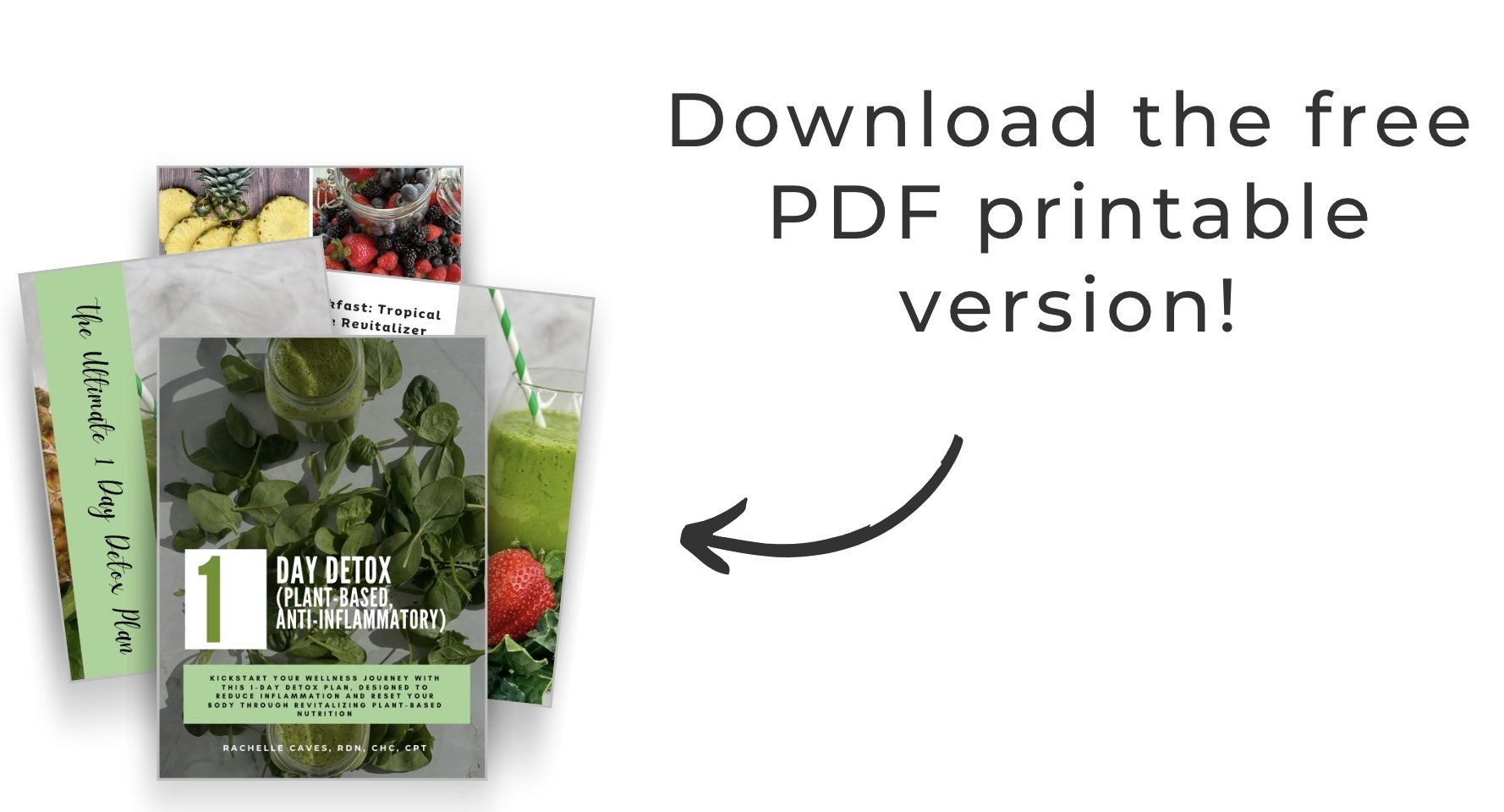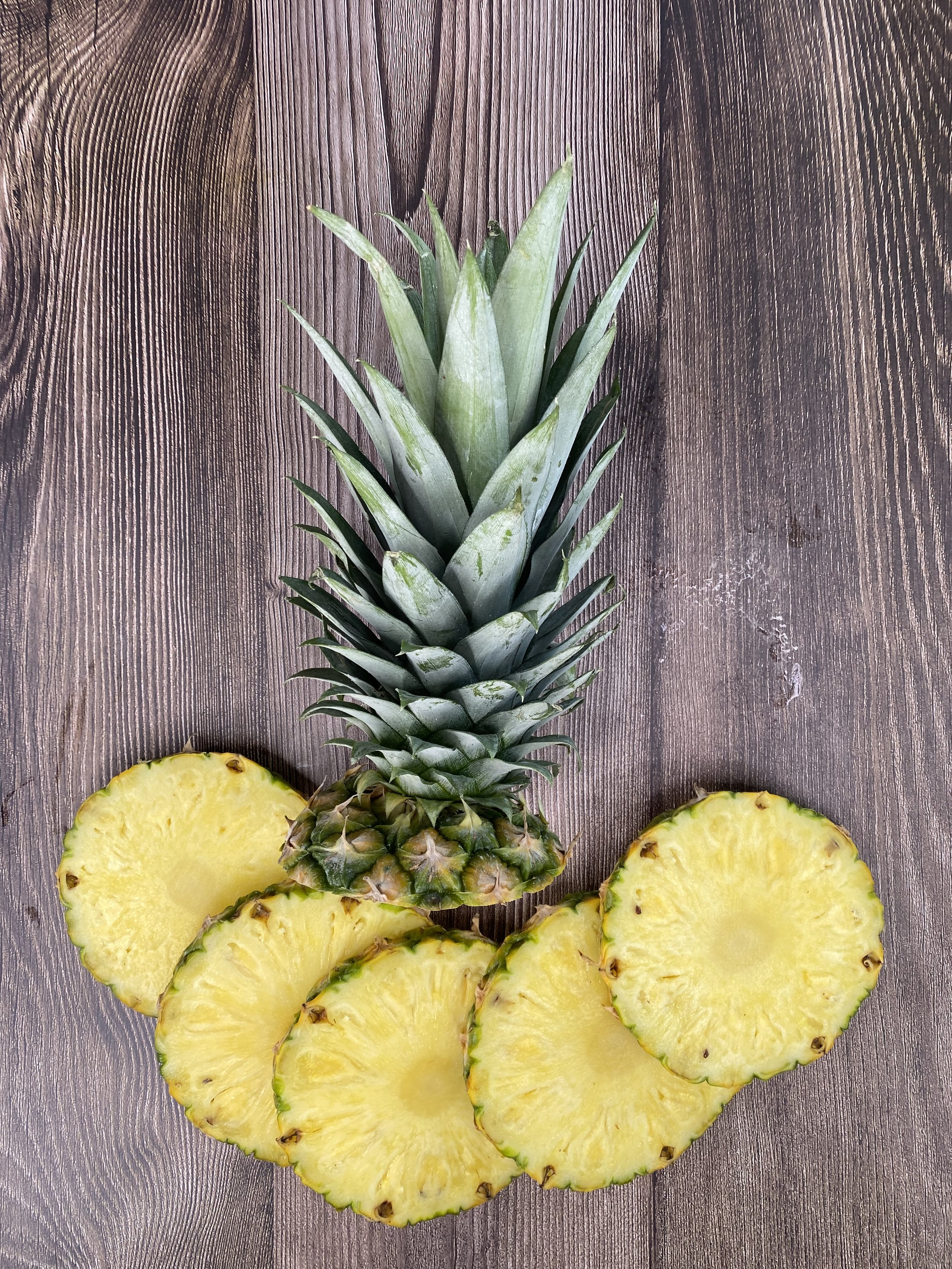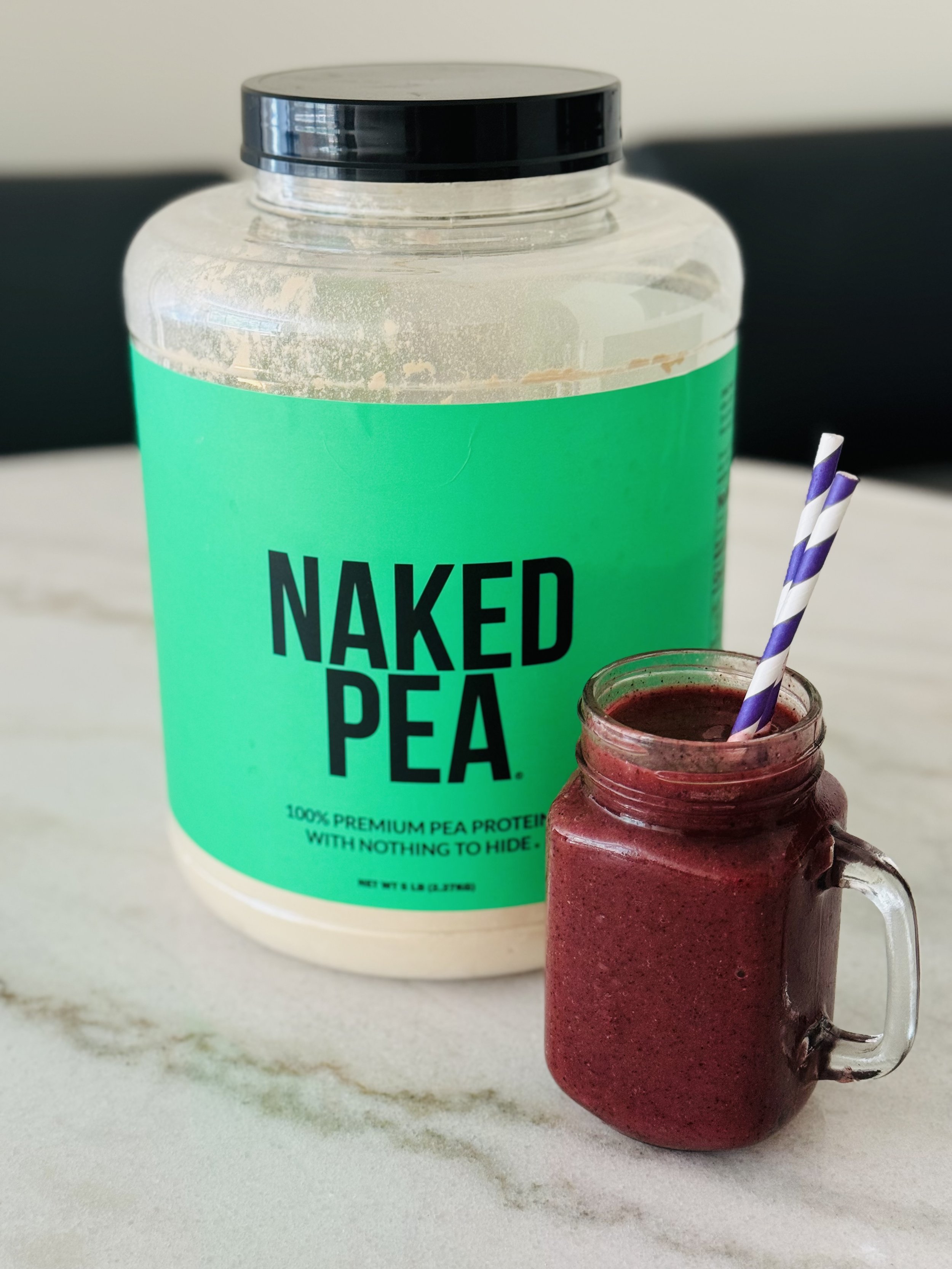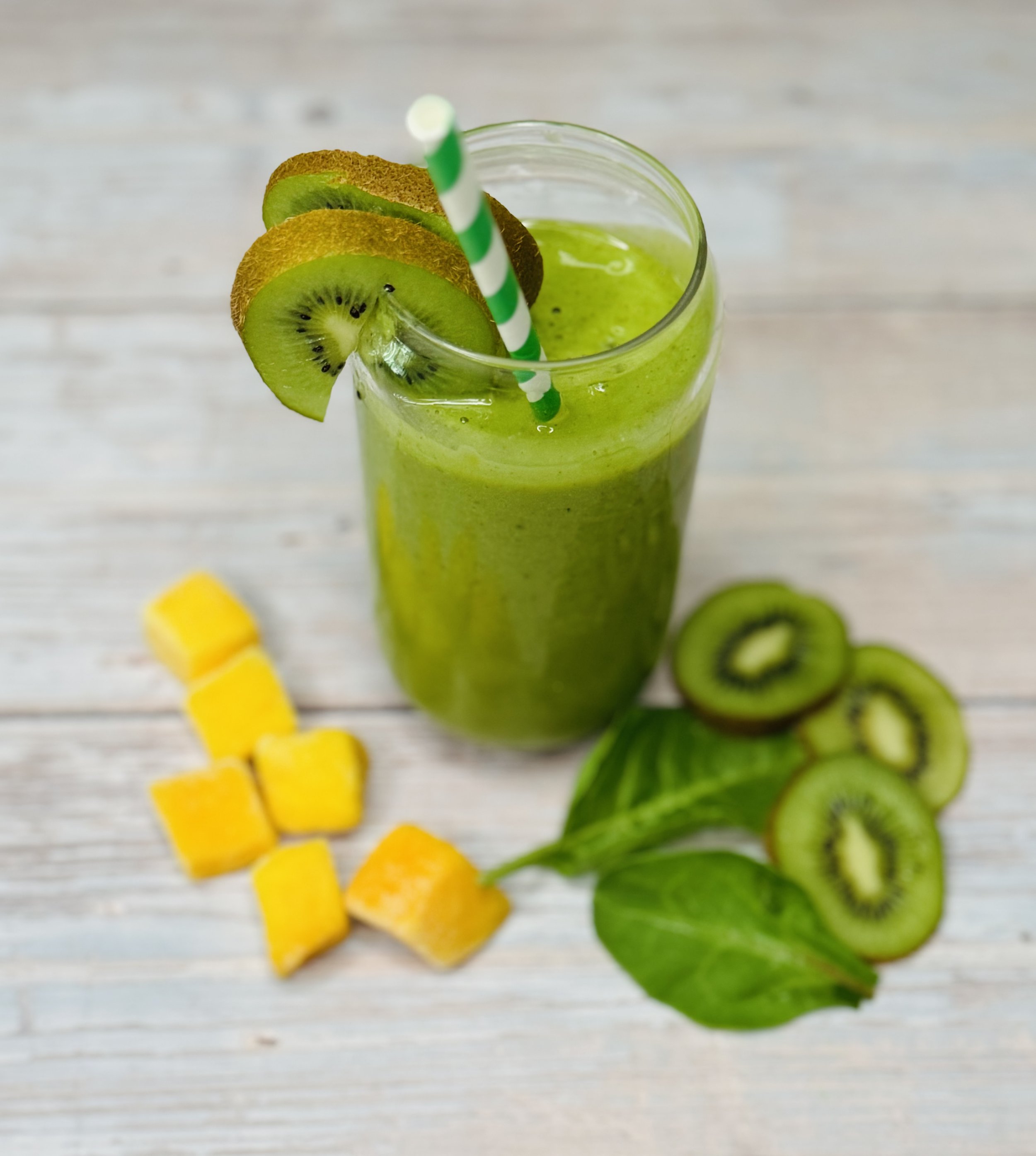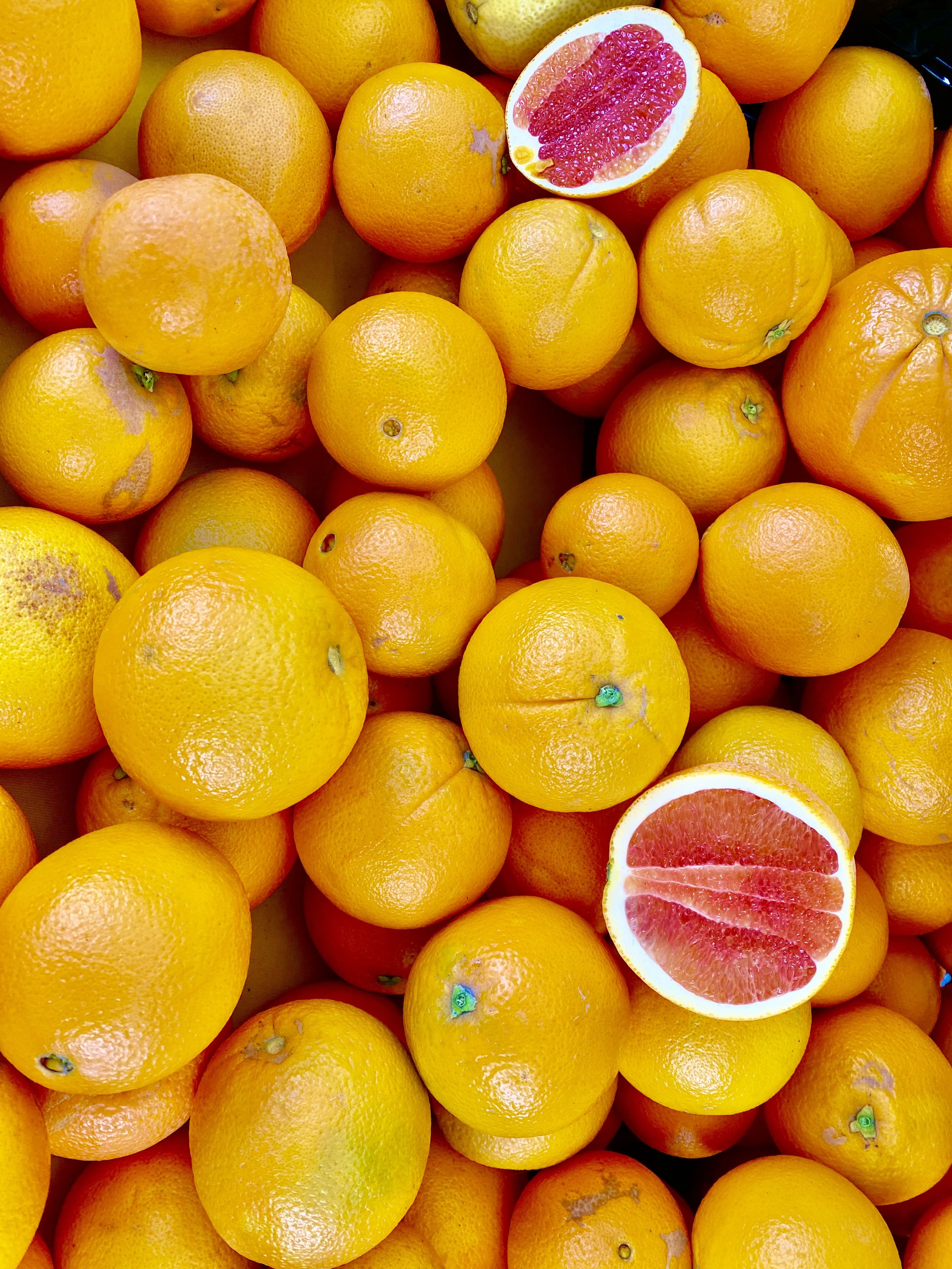1 Day Detox
This article is for informational purposes only and is not meant to be used in place of medical advice. Please consult your medical provider on all health, medical and/or diet-related concerns.
As an Amazon Associate I earn from qualifying purchases.
Feeling sluggish, bloated, or like your diet needs an overhaul? In just 24 hours, you can revitalize your body with nutrient-rich, plant-powered foods and beverages.
No deprivation, no weird herbs —just real, anti-inflammatory nourishment that supports the health of every cell in your body.
If you’re ready to feel lighter, more energized, and refreshed… you’re in the right place. Let’s get started!
What is the 1 Day Detox?
The 1 Day Detox is a plan designed to give you a glimpse of an antioxidant-packed, plant-powered diet! For just one day, you’ll “detox” - or, give your body a break from - foods that contribute to inflammation and fuel it with nutrient-packed, plant-based goodness.
This detox plan isn’t just about cutting things out—it’s about adding in the right foods and beverages that nourish and support your body from the inside out. Designed to nourish and energize, not deprive, the 1 Day Detox fills your day with cleansing smoothies, anti-inflammatory snacks, and a clean, nourishing dinner, all packed with phytonutrients and antioxidants to supercharge your health.
With each bite and sip, you’ll neutralize free radicals, reduce oxidative stress and support your body’s natural detoxification systems (like the liver, kidneys and digestive tract).
The 1 Day Detox is just the beginning—a jumpstart to a more energized, inflammation-free you! Imagine how much better you could feel if you extended these habits over weeks instead of just a day. That’s why the full Vegan Detox is the perfect next step, giving you the time and guidance to fully transform your diet, reduce inflammation, and elevate your health to new levels.
Read on to continue the 1 Day Detox!
Who should do the 1 Day Detox?
If you’re feeling sluggish, bloated, or like your diet could use a health boost, the 1 Day Detox is for you! Whether you’ve recently experienced a health event that’s motivated you to live a healthier lifestyle, or you’re curious about how a plant-powered, anti-inflammatory diet can transform your body, this detox is the perfect place to start.
Think of it as your first step toward lasting change. Once you experience how great you can feel by nourishing your body with these nutrient-packed foods and removing pro-inflammatory foods, you’ll be ready to dive deeper into a longer-term approach to healthy living.
This isn’t just a quick fix—it’s a powerful step toward building habits that boost your energy, reduce inflammation, and support your long-term health. Ready to elevate your wellness journey? The 1 Day Detox will set you up for success!
What's Included in the 1 Day Detox?
-
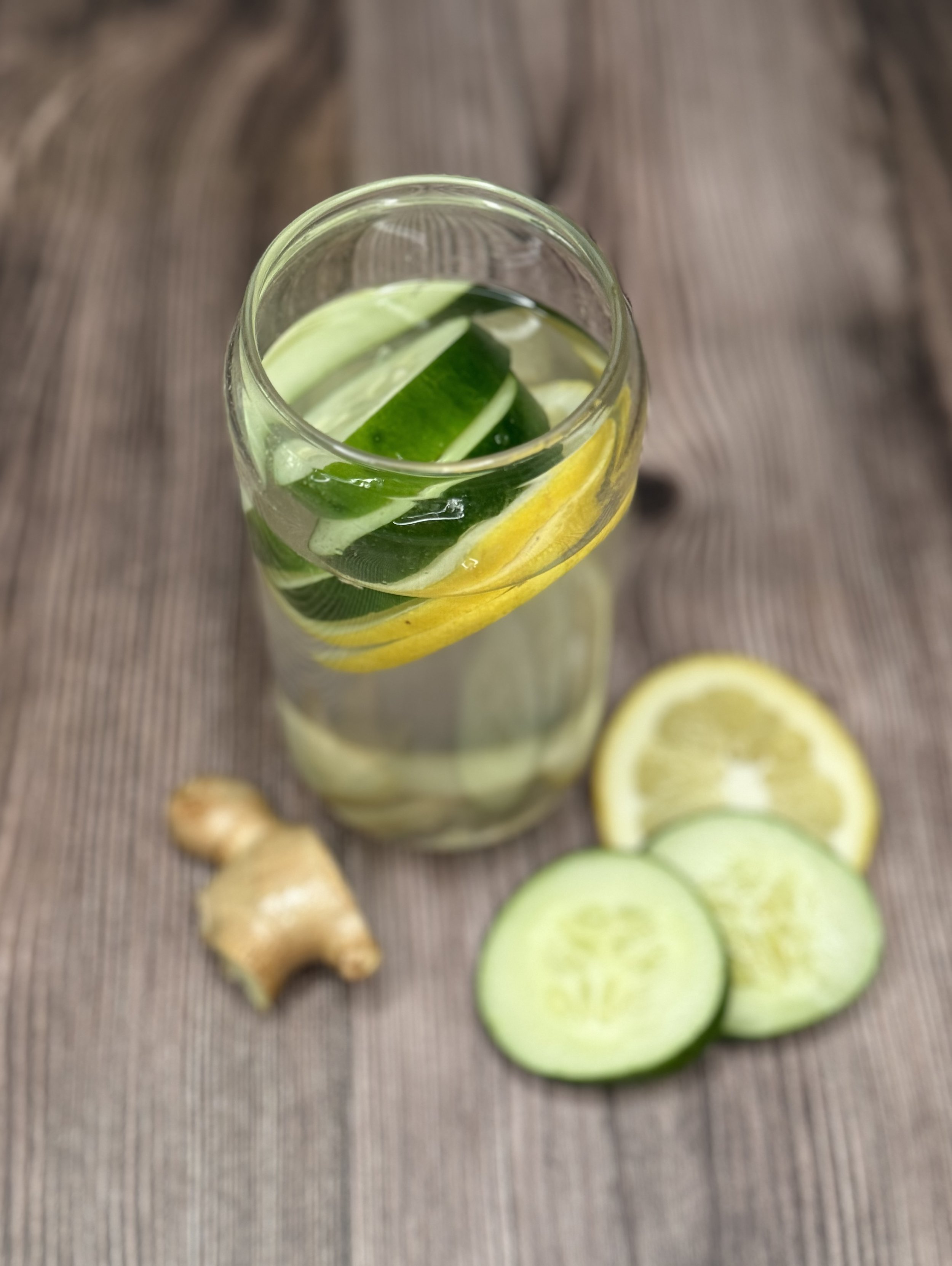
Hydrating Detox Water
-

Two Plant-Powered Green Smoothies
-
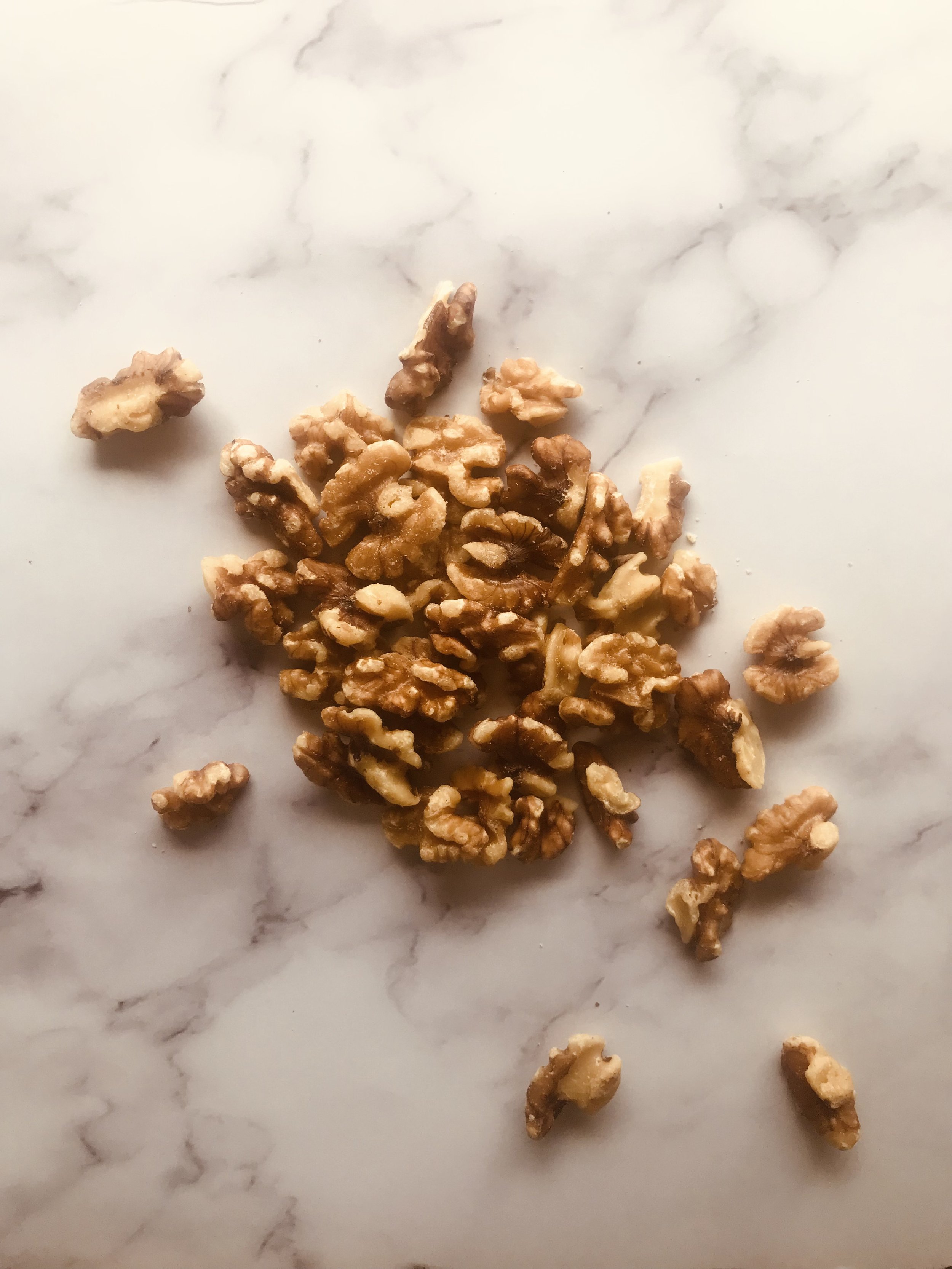
Anti-Inflammatory Snacks
-
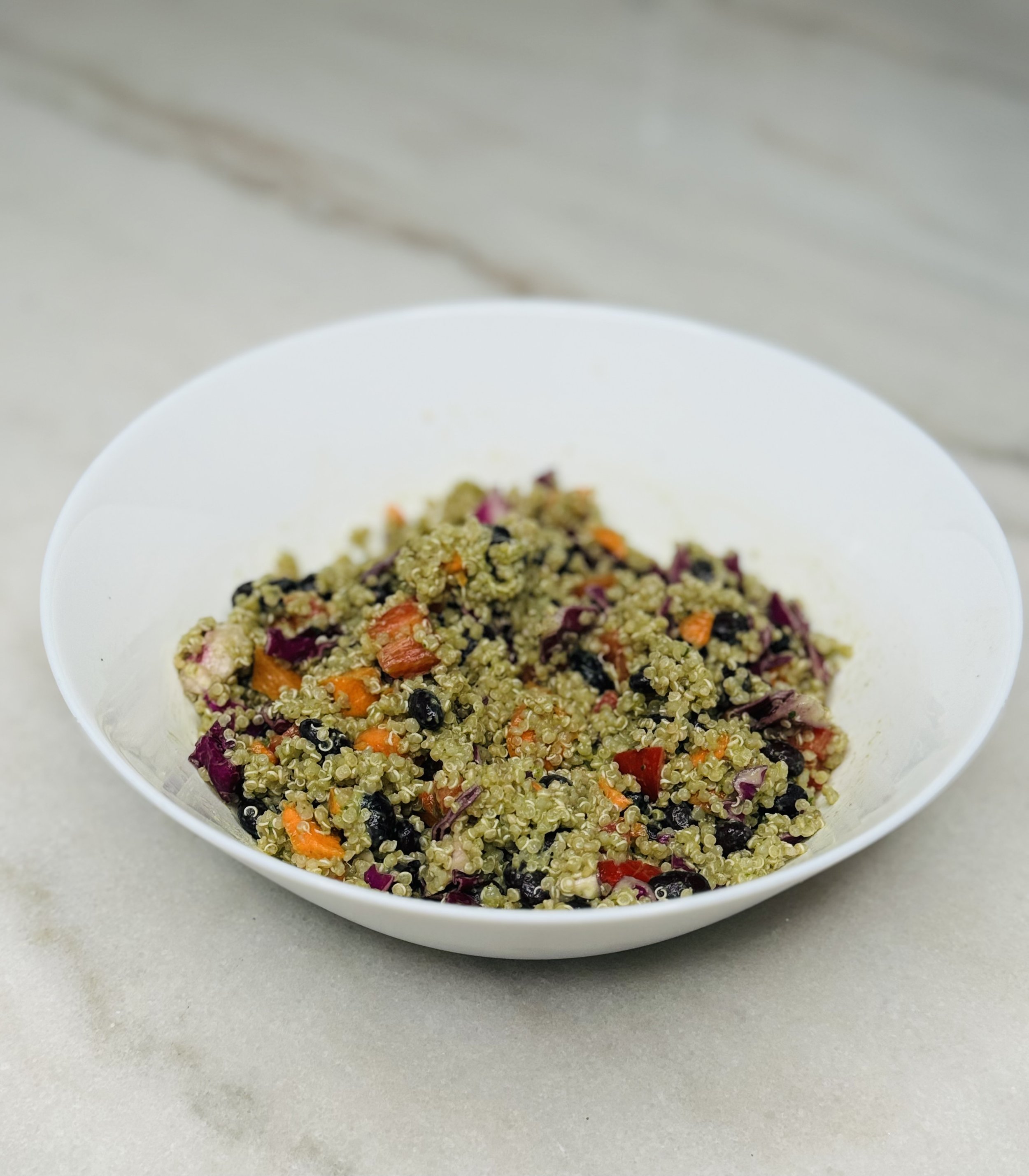
Nourishing Dinner
1 Day Detox Overview
Anti-Inflammatory, Plant-Powered Nutrition
This 1 Day Detox is designed to nourish your body with essential nutrients while giving it a break from pro-inflammatory foods like meat, dairy, and processed junk foods. Instead of cutting calories, the focus is on quality, not quantity, of food. You’ll fuel your body with nutrient-dense, anti-inflammatory foods that naturally enhance detoxification by supporting digestion, liver, kidney and overall health.
The result? You’ll feel energized and rejuvenated. Below is a brief overview of your 1 Day Detox.
Hydration
Adequate hydration is key to glowing skin, a healthy metabolism, smooth digestion, and efficient toxin elimination. Throughout the day, you'll enjoy:
Detox Water: A refreshing blend of cucumber, lemon, and ginger to hydrate your cells, aid digestion, and enhance detoxification all day long by keeping you hydrated and supporting your lovely kidneys.
Tea: Choose green, peppermint, or rooibos tea for a powerful antioxidant boost. These teas are rich in antioxidants and polyphenols that promote cellular health and provide anti-aging benefits.
Coffee (Optional): If you love coffee, keep it in your routine! It’s packed with antioxidants and liver-supportive properties - - just make sure to pair it with unsweetened non-dairy milk for a detox-friendly option.
Nutrient-Powered Smoothies
Start your day with two nutrient-packed, plant-powered smoothies — one for breakfast and one for lunch — crafted to keep you energized, nourished, and glowing from the inside out. Each smoothie is a powerhouse of phytonutrients and antioxidants that naturally support your body’s detoxification and enhance your complexion. Begin your morning with a vibrant kale smoothie, then refresh your afternoon with an energizing spinach smoothie for lunch. Both are expertly balanced with plant-based proteins and anti-inflammatory fats to fuel your body, keeping you satisfied and avoiding those midday energy crashes.
Anti-Inflammatory Snacks
Balanced blood sugar is essential for any anti-inflammatory plan, and wholesome snacks are the perfect way to support it. Enjoy a handful of walnuts, Brazil nuts, and pistachios — each packed with omega-3 fatty acids and anti-inflammatory nutrients that promote thyroid, brain, and heart health.
For an extra boost, pair a crisp apple with creamy almond butter. This nutrient-rich combination of fiber and healthy fats will keep you feeling full while stabilizing blood sugar and supporting digestive health throughout the day.
Wholesome Plant-Powered Dinner
For dinner, enjoy a detox-friendly quinoa salad with vibrant purple cabbage, offering a perfect balance of fiber to cleanse your gut, plant-based protein, and anti-inflammatory fats to keep your energy steady. This nutrient-dense dish is packed with antioxidants and phytonutrients that protect your cells from damage, helping to slow aging and reduce the risk of chronic disease. The powerful combination of quinoa and detoxifying purple cabbage boosts metabolism, fights inflammation, and leaves you feeling light, refreshed, and nourished as you wind down for the evening.
Expert Tip: Having the right tools is key to maximizing your detox experience. Investing in high-quality equipment not only streamlines the process, but also helps you achieve the best results. Below the detox plan, you’ll find my top recommendations for essential kitchen tools that I personally use and love. I’ve also included links to specific food products I use in each recipe.
The Ultimate
1 Day Detox Plan
Let’s get started! Below is the nourishing reset for your body, designed to fuel, cleanse, and energize from the inside out.
Night Before: Prep Your Detox Water
Get your water pitcher ready (this one is perfect for infusing fruits and veggies!) and wash ½ lemon, ½ knob of fresh ginger, and ½ cucumber—or adjust the amounts to suit your taste.
Slice everything thinly and add it to your pitcher.
Fill it with pure, filtered water, and pop it in the fridge overnight to let those refreshing flavors and detoxifying nutrients infuse. Wake up to a crisp, revitalizing drink to kickstart your day!
Morning of Detox: This morning routine will hydrate, energize and set you up for a successful day ahead!
Upon Waking: Start your day with a large glass of detox water to jumpstart your metabolism and digestion — a simple yet essential habit. Make this part of your daily routine, and feel free to switch up your detox water with an array of colorful fruits and veggies for variety!
Keep a canister of detox water with you and enjoy it throughout the day to stay hydrated and energized. This helps flush out toxins and keeps your body feeling refreshed and revitalized from morning to night.
Next, choose your warm energizing beverage. Have a mug or two of the following:
Option 1: Caffeinated
Good-quality coffee, Black or with unsweetened vanilla almond or oat milk
Option 2: Caffeine-Free
Decaf Coffee
Pro Tip: Boost your health and enhance your skin’s glow by adding a pinch of ground cinnamon or cacao to your coffee! It’s a simple habit that delivers powerful benefits for both your body and complexion.
Transition to Breakfast: Now that you’ve set a fresh, hydration foundation for your day, it’s time to have your first delicious plant-powered protein smoothie!
Breakfast: Tropical Kale Revitalizer Smoothie
Kickstart your 1 Day Detox plan with this powerhouse smoothie that’s packed with nutrient-dense ingredients to fuel your body, boost your energy, and support your body’s natural detoxification systems. It’s the perfect way to start your day strong and stay energized!
Ingredients
2 big handfuls of kale
1 cup frozen pineapple
1 cup frozen strawberries
1/3 cup Goji berries
¼ cup raw cashews
Serving of Pea Protein Powder (Naked Nutrition and Anthony’s are both clean, good choices I use)
2 cups unsweetened vanilla almond milk (adjust the amount as needed to achieve your preferred consistency)
Instructions:
1. Combine Ingredients: Add all the ingredients to your blender.
2. Blend to Perfection: Blend until smooth and creamy.
3. Serve and Savor: Pour into a glass and enjoy your first detox smoothie of the day!
Nutrition Facts: *Note all nutrition facts provided are approximate and vary depending on ingredients and preparation methods.
Calories: 562, Protein: 41 grams, Carbohydrate; 62 grams, Fiber: 7 grams, Total Fat: 18 grams, Cholesterol: 0 miligrams, Sodium: 436 miligrams
Benefits:
Kale: Get ready to supercharge your detox with kale—one of the most potent, inflammation-fighting greens! When you blend kale, it activates powerful compounds like isothiocyanates and indole-3-carbinol, thanks to the natural combination of glucosinolates and myrosinase. These antioxidants not only support liver detoxification but also help balance hormones and provide anti-cancer benefits, making kale an essential ingredient for boosting health and wellness in your smoothies.
Berries - Berries are an absolute essential for a healthful diet, and that's why they are a MUST in my programs! Strawberries and goji berries are powerful anti-inflammatory superfoods that help fight aging and even cancer. Loaded with antioxidants like vitamin C, flavonoids, and carotenoids, they combat oxidative stress, protect cells from damage, and slow down the aging process. These berries also reduce inflammation, support heart and brain health, and promote better circulation. Including them in your smoothies is not just a delicious choice; it’s a powerful way to supercharge your vitality, combat chronic disease, and nourish your body from the inside out. You simply can’t achieve optimal health without these nutrient-packed gems!
Pineapple is your tropical powerhouse for fighting inflammation, boosting immunity, and even slowing aging! Packed with bromelain, a potent enzyme, pineapple may help reduce inflammation, improve digestion, and speed up recovery from injuries. It’s also rich in vitamin C, which strengthens your immune system and combats oxidative stress, protecting cells from damage and lowering the risk of chronic disease. Pineapple not only supports detoxification but can also keep your skin and cells youthful and vibrant.
Cashews: To achieve optimal health, it’s essential to include nuts and seeds in your daily diet. Cashews are a fantastic choice for your smoothie, providing a rich, creamy texture along with incredible health benefits. Packed with zinc for a strengthened immune system and healthy skin, plus magnesium for muscle and nerve health, they are essential for overall well-being. Their heart-healthy fats and plant protein also help reduce inflammation and stabilize blood sugar, keeping you full and satisfied. With cashews, you not only enhance the texture of your smoothie but also nourish your body with vital nutrients!
Recommended Plant-Based Protein Booster: Naked Nutrition Pea Protein
Elevate your detox and daily smoothie routine with Naked Nutrition Pea Protein Powder! This clean, plant-based protein is free from additives and artificial sweeteners, making it a pure choice for your health. It supports heart health and lean muscle while providing essential amino acids for effective liver detoxification. As someone who is very selective with protein powders, I can confidently say that Naked Nutrition Pea Protein is what I use daily in my green smoothies. It’s a reliable, high-quality option that fits seamlessly into a clean, healthy lifestyle.
Pro Tip: Keep your detox water close by and sip it throughout the day to stay hydrated and support your body’s natural cleansing processes.
Mid-Morning Snack:
A Powerhouse of Nutrition
Incorporating nuts and seeds daily is essential for overall health, which is why they are a cornerstone of my programs. Enjoy 1 handful or 1/4 cup of raw walnuts and 2 Brazil nuts as a detox-friendly mid-morning snack, offering a range of powerful benefits.
Rich in Omega-3 fatty acids, known for their anti-inflammatory properties, supporting brain, heart, and overall health.
High in antioxidants with potential cancer-fighting benefits, particularly colon cancer.
Nuts are also effective in promote natural weight management!
A powerhouse of selenium, an essential mineral for thyroid function, metabolism, and an antioxidant boost!
Pair with Peppermint Tea for added digestive support and stress relief, creating a refreshing and calming snack experience.
Nutrition Facts - Calories: 256, Protein: 6 grams, Total Fat 25 grams, Carbohydrate: 5 grams, Fiber: 3 grams, Cholesterol: 0 miligrams, Sodium: 0 miligrams
Lunch: Kiwi Cleanser Smoothie
Ingredients
2 large handfuls of organic baby spinach
2 green kiwis (skin on, washed and cut)
1 1/2 cup frozen mango (2 cups if you’d like a thicker texture)
3 tablespoons hemp hearts (seeds)
1 tablespoon pumpkin seeds
2 cups unsweetened vanilla flax milk (adjust the amount as needed to achieve your preferred consistency)
*Optional: 1 Tbsp Naked Nutrition Pea Protein Powder
Instructions:
1. Combine Ingredients: Add all the ingredients to your blender.
2. Blend to Perfection: Blend until smooth and creamy.
3. Serve and Savor: Pour into a glass and enjoy your second detox smoothie of the day!
Nutrition Facts: Calories: 587, Protein: 29 grams, Carbohydrate: 67 grams, Fiber: 11 grams, Total Fat: 25 grams, Cholesterol: 0 mg, Sodium: 329 mg
Benefits
Spinach: Packed with iron, magnesium, and potent phytonutrients like flavonoids and carotenoids, spinach is a powerhouse for fighting inflammation and oxidative stress. These compounds offer protection against cellular aging and chronic disease. Its high vitamin K levels support bone health. Its antioxidants also play a crucial role in protecting the brain and reducing the risk of cancer, making spinach an all-around nutritional powerhouse.
Green Kiwis: Kiwis are a powerhouse of fiber, vitamin C, and phytonutrients like polyphenols and carotenoids. These nutrients provide potent DNA protection by neutralizing free radicals and reducing oxidative cell damage. Regular consumption of kiwis may help prevent DNA mutations, slow the aging process, and lower the risk of chronic diseases such as cancer. They also promote digestive regularity!
Mango is rich in mangiferin, a potent antioxidant celebrated for its strong anti-inflammatory and DNA-protective properties. It neutralizes free radicals, reducing oxidative stress and lowering the risk of chronic diseases. Mangiferin supports heart health, reduces inflammation, and protects skin by preventing cellular damage. Additionally, mango’s natural fiber aids digestion, while its vitamin C enhances collagen production, promoting skin elasticity and anti-aging effects.
Medjool Dates: Medjool dates are a nutrient-dense source of natural sweetness, rich in fiber and phytonutrients that promote gut health and stabilize blood sugar. Their potassium and magnesium content supports heart health, muscle relaxation, and reduces inflammation, while delivering a boost of essential minerals to nourish your body.
Hemp Hearts are rich source of plant-based protein and essential fatty acids, including omega-3 and omega-6. They contain gamma-linolenic acid (GLA), which may help reduce inflammation and support skin health. Hemp hearts are also packed with vitamin E, which promotes healthy skin and protects against oxidative stress, as well as essential minerals like magnesium, zinc, and iron that support brain function and cardiovascular health.
Pumpkin Seeds are a nutritional powerhouse, rich in magnesium, zinc, and antioxidants. They effectively reduce inflammation and oxidative stress, making them an excellent choice for overall health. Packed with high-quality protein and healthy fats, pumpkin seeds support muscle repair and stabilize blood sugar. Their impressive phytonutrient profile bolsters immune health and slows the aging process by protecting cells from damage, promoting longevity and vitality.
Unsweetened Vanilla Flax Milk is a superior alternative to cow's milk, brimming with omega-3 fatty acids, fiber, and lignans that provide powerful anti-inflammatory benefits. Unlike cow's milk, flax milk is rich in phytonutrients that help balance hormones, support heart health, and aid digestion. Its detox-friendly properties make it an excellent base for smoothies, promoting overall wellness and anti-aging benefits.
Incorporating these ingredients into your smoothies not only enhances their flavor but also boosts their nutritional value, helping you stay energized and healthy throughout the day!
Mid-Afternoon Energizing Snack
Enjoy a crisp, delicious red apple with 2 tablespoons of creamy almond butter for a perfectly balanced snack. The apple provides natural sweetness and fiber to keep you full, and antioxidants to protect your cells. Paired with almond butter, you'll get a boost of healthy monounsaturated fats and plant-based protein, along with magnesium to support energy production and muscle function.
Enhance this snack with metabolism-boosting Sencha green tea, packed with anti-inflammatory and anti-cancer antioxidants that combat premature aging.
Together, this combination provides a satisfying mix of nutrients to keep you energized and nourished throughout the afternoon.
Nutrition facts - Calories: 276, Protein: 8 grams, Carbohydrate: 25 grams, Fiber: 6 grams, Cholesterol: 0mg, Sodium: 3 mg (unsalted almond butter)
You're almost at the finish line of your detox! For your final meal, enjoy a warm quinoa salad loaded with vibrant veggies and topped with a refreshing avocado-cilantro lime dressing. This nutrient-rich dish will fuel your body as it detoxifies, leaving you satisfied and energized.
Dinner: Detox Quinoa Salad with Avocado-Cilantro Dressing
Salad Ingredients:
1 cup cooked Quinoa (pre-washed makes a HUGE difference in preparation, if you ask me)!
1/2 cup shredded purple cabbage
1/4 cup chopped red bell pepper
1/4 cup shredded carrots
Dressing Ingredients:
1 small ripe avocado
1/2 cup fresh cilantro, chopped
1 large garlic clove
1 Tbsp lime juice
1 tbsp Extra Virgin Olive Oil
1/2 cup filtered water (to thin dressing - use more or less depending on your preferred consistency)
1 Tbsp date syrup
Pinch of iodized sea salt and black pepper, to taste
Instructions:
Cook the Quinoa
Prepare the quinoa according to package instructions and set it aside to cool slightly.
Prepare the Vegetables
Chop the purple cabbage into small pieces (using a knife or food processor).
Finely chop the red bell pepper.
Shred the carrots with a grater or above food processor.
Rinse the black beans and set these and the chopped veggies aside.
Make the Dressing
In a blender or food processor, blend the avocado, cilantro, garlic, lime juice, olive oil, date syrup, salt, and pepper.
Add more / less water to reach your preferred consistency.
Set aside in a small bowl.
Assemble the Salad and Serve
In a large bowl, combine the cooked quinoa, black beans, red bell pepper, carrots, and purple cabbage.
Drizzle the avocado-cilantro dressing over the salad and toss well to coat everything evenly.
Enjoy the salad slightly warm! You can also refrigerate some for a cold, refreshing meal later!
Nutrition Facts (assuming the dish is split into two servings - if you have the whole thing, simply double these values). Does not factor in added salt. Calories: 392, Protein: 10 grams, Carbohydrate: 47 grams, Fiber: 14 grams, Total Fat: 20 grams, Cholesterol: 0 mg, Sodium: 41mg
Anti-Inflammatory
and
Antioxidant Benefits
This nutrient-packed salad is designed to enhance your body’s natural detoxification pathways, reduce inflammation, and promote cellular health for anti-aging and chronic disease prevention. The benefits include:
Purple Cabbage is a cruciferous powerhouse of nutrients, packed with anthocyanins, which are potent antioxidants known for their strong anti-inflammatory properties. These compounds help combat oxidative stress while enhancing the body’s ability to eliminate toxins through liver detoxification. Additionally, purple cabbage promotes healthy digestion due to its high fiber content, aiding in digestive regulation and overall gut health. The unique phytochemicals found in purple cabbage may also help protect cells from cancer by neutralizing harmful free radicals and reducing inflammation. Incorporating purple cabbage into your diet is a simple yet effective way to bolster long-term health and support cellular repair, making it an exceptional ingredient for anyone looking to enhance their overall well-being.
Quinoa is a powerhouse of plant-based protein, offering a well-rounded profile of essential amino acids vital for tissue repair and muscle recovery. Its abundant fiber content promotes healthy digestion, while natural anti-inflammatory compounds like quercetin help regulate blood sugar levels and support metabolic health. This makes quinoa an exceptional grain for managing inflammation and boosting overall wellness.
Black beans are a nutritious, high-fiber source of plant-based protein that support digestive health and promote blood sugar stability. Their abundant fiber content not only promotes satiety, aiding in natural weight management, but also enhances gut health by feeding healthy colon bacteria. Rich in antioxidants, black beans contribute to heart health and play a significant role in reducing inflammation throughout the body, making them an exceptional anti-inflammatory food. By incorporating black beans into your diet, you can enjoy a variety of health and weight management benefits!
Red Bell Pepper: Red bell peppers are loaded with vitamin C and beta-carotene, which strengthen the immune system and protect against oxidative stress. Their anti-inflammatory properties also support skin health and help repair tissues, making them vital for anti-aging and skin vitality.
Avocados are a great source of heart-healthy monounsaturated fats, which not only help reduce inflammation but also promote cardiovascular health. These healthy fats aid in nutrient absorption from other vegetables, enhancing the bioavailability of fat-soluble vitamins and certain phytonutrients. Rich in fiber, avocados support healthy digestion and contribute to feelings of fullness, which can aid in natural weight management. Additionally, their nutrient profile includes compounds that may help improve insulin sensitivity, making them beneficial for managing blood sugar levels. They’re packed with antioxidants, thus protecting cells from oxidative damage and contribute to overall cellular health.
Olive Oil is rich in monounsaturated fats (MUFAs), which can help promote heart health when substituted for saturated fats. It also contains compounds like oleocanthal that offer anti-inflammatory effects. Incorporating olive oil into your diet provides antioxidants such as vitamin E and polyphenols, protecting against oxidative stress.
Cilantro is an antioxidant-rich herb high in quercetin and vitamin C, which helps reduce oxidative stress and inflammation while promoting natural detoxification and overall well-being.
Together, these vibrant ingredients create a nourishing salad that supports liver, kidney, and digestive function, while combating inflammation and enhancing the body's detoxification pathways. Perfect for anti-inflammatory and anti-aging diets!
Inflammation-Calming Evening Snack
Here’s your final snack of the day: a handful of pistachios paired with a soothing mug of rooibos tea. Pistachios are rich in fiber and protein, helping keep you full and supporting healthy weight management, while their anti-inflammatory properties protect against oxidative stress. Rooibos tea, naturally caffeine-free, is loaded with antioxidants like aspalathin, which can reduce inflammation and support healthy skin. Enjoy this nourishing combo to wind down your day and support your body’s natural healing processes overnight!
Nutrition Facts - Calories: 160, Protein: 6 grams, Carbohydrate: 8 grams, Fiber: 3 grams, Cholesterol: 0 mg, Sodium: 0mg
*This pertains to unsalted, dry-roasted pistachios.
Congratulations on completing your 1 Day Detox!
You've just taken an important step toward resetting your body and fueling it with nutrient-dense, anti-inflammatory goodness. By implementing this regimen, you've nourished your system, supported natural detoxification, and set the stage for vibrant energy and well-being. But don’t stop here! Read on for the recommended tools to help you stay on track - not just with the detox plans, but in everyday life!
These will keep you prepared and motivated as you transition into the full 21-day Vegan Detox Program—a deeper dive into anti-inflammatory nutrition designed to help you conquer bloating, fatigue, and weight gain, and create long-lasting health transformation.
Essential Tools for the 1 Day Detox and Everyday Nutrient-Powered Living!
To get the most out of your 1-Day Detox and to continue building healthy habits, having the right tools is key. These carefully selected essentials aren’t just optional add-ons; they’re absolute game-changers that will make your wellness routine easier, more effective, and enjoyable! Please note that I’m a fan of these products and I’m excited to share them with you.
Choosing the Perfect Blender for Your Health Journey: A Vital Step Toward Better Living
To create nutrient-dense, high-quality smoothies, you need a blender that truly performs. A daily green smoothie can be transformative, supporting weight management and helping to prevent chronic diseases by flooding your body with essential nutrients and antioxidants.
If you’re serious about making plant-powered smoothies a staple in your daily routine—and trust me, you should—investing in a Vitamix is a total game-changer. It may sound like an exaggeration, but this blender has changed my life! I hesitated for years because of the price, but my only regret is not buying it sooner. I tried the less expensive blenders, but the results were always the same: lumpy, stringy smoothies that were hard to enjoy.
When I got my Vitamix, the difference was immediate—smooth, delicious smoothies that were easy to digest with boosted nutrient absorption. It’s not just for smoothies either—it handles everything from nut butters to hummus with ease. My Ascent Vitamix is a daily essential, especially for my green smoothies, which are key to my programs. If you’re looking to really lower inflammation (the root of many health issues) and nourish your body for the long haul, investing in a Vitamix is a decision you won’t regret. And, they seem to last infinitely! Woo-hoo!
Not quite ready for the Vitamix?
To succeed with a nutrient-powered lifestyle, you need a reliable blender to make the most of every ingredient. A good blender is key to crafting smoothies that are smooth, easy to digest, and packed with nutrients. If you're not ready to invest in a Vitamix, the Nutribullet is a fantastic alternative. It’s compact yet powerful enough for daily smoothies, making it the perfect stepping stone to healthier habits.
Insulated Cannister: Keep Your Smoothies
Cold & Fresh On-the-Go
Life can get busy, but that doesn’t mean your health routine should suffer. With the HydroFlask insulated canister, you can take your smoothies with you anywhere and trust that they’ll stay cold, fresh, and delicious for hours. I never leave home without mine! Whether you're running to the gym, tackling work meetings, or managing a packed schedule, this durable container helps you stick to your detox plan, even on your busiest days. It’s more than just convenient—it’s a must-have for anyone serious about staying consistent with their health goals.
Water Infuser Pitcher: Make Hydration Exciting
Hydration is key to optimal health, metabolism and skin - but why settle for plain water when you can supercharge it? A Water Infuser Pitcher lets you easily add fresh fruits, herbs, or veggies—like lemon, cucumber, or mint—to create refreshing, naturally-flavored detox water everyday! Once you try it, drinking more water will become something you look forward to.
Take the Next Step: Transform Your Health with the Vegan Detox
21-Day Program!
You’ve experienced the benefits of a 1 Day Detox— feeling lighter, more energized, and giving your body a much-needed break from pro-inflammatory foods. But why stop here?
This program is more than just a quick fix—it’s an expert-led, anti-inflammatory nutrition plan that addresses the root cause of your health struggles and transforms your body from the inside out. If you're caught in a cycle of unhealthy habits and feeling the ill effects of chronic inflammation like sluggish digestion, fatigue, pain and stubborn weight gain, this is a chance to jumpstart your health and build new anti-inflammatory diet habits in under a month.
Why the Vegan Detox is Your Solution
Stop Inflammation in its Tracks: Inflammation is the silent culprit behind so many health issues—digestive problems, prediabetes, diabetes, low energy, pain and weight gain. The Vegan Detox focuses on including nutrient-dense, anti-inflammatory plant foods, reducing internal inflammation, soothing your body, and giving you relief from symptoms that have been holding you back.
De-bloat and Feel Lighter: Bloating and sluggish digestion can leave you feeling uncomfortable and drained. This detox is packed with gut-friendly, fiber-rich foods that gently support your body’s natural detoxification processes. You’ll feel lighter, more comfortable, and less bloated.
Shed Stubborn Pounds: Struggling to lose weight? The Vegan Detox jumpstarts natural weight loss by fueling your body with clean, whole, anti-inflammatory foods. There’s no deprivation or calorie counting—just effective, nourishing meals that support a leaner, healthier body.
Regain Control of Your Health: Tired of the constant cycle of energy crashes, digestive discomfort, and unhealthy cravings? The Vegan Detox provides the knowledge, tools, and nutrition your body needs to reset and sustain long-term health. It’s about creating lasting change, not just a quick fix.
Led by an Expert: You’ll be guided by Rachelle Caves, a nutrition expert in plant-based and anti-inflammatory nutrition, ensuring that every step of the program is tailored to your body’s needs and designed to support your ultimate health transformation.
Why You Need More Than a Day
The 1 Day Detox gave you a taste of what it feels like to nourish your body properly and eliminate inflammatory foods. But to truly reset your body and experience lasting change, you need more than just a day. The Vegan Detox is the perfect next step because it addresses the deeper causes of your health issues and provides a long-term solution for feeling your best.
What Results Can You Expect?
Expect to feel lighter, energized, and more in control of your health. From improved digestion and clearer skin to stable energy levels, The Vegan Detox helps you feel vibrant and healthy. You’ll also reduce your risk of chronic diseases related to inflammation, like heart disease, diabetes, and arthritis. This detox isn’t just about quick fixes—it’s about building a healthy foundation for your best, most vibrant self.
Why Settle for Feeling “Okay” When You Can Feel Amazing?
You deserve to feel your best every day—not just one! The Vegan Detox is your chance to really jumpstart your healthy anti-inflammatory diet for the long haul… and will leave you feeling empowered, healthier, and more energized than ever. Take the next step towards total wellness and break free from the inflammation, discomfort, and sluggishness holding you back.
Ready to feel outstanding in your body?
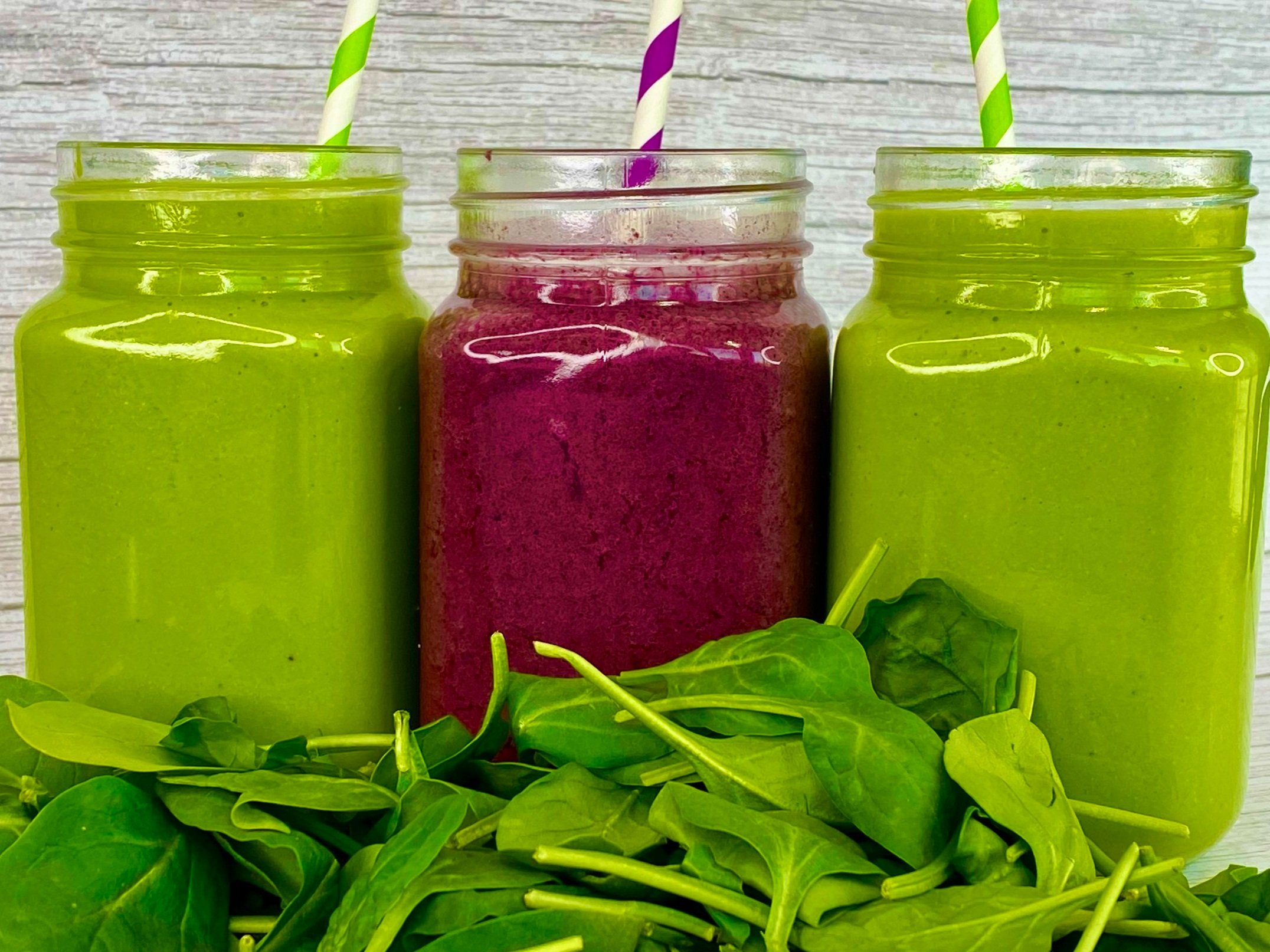
Don’t forget your free printable copy
of the 1 Day Detox!

